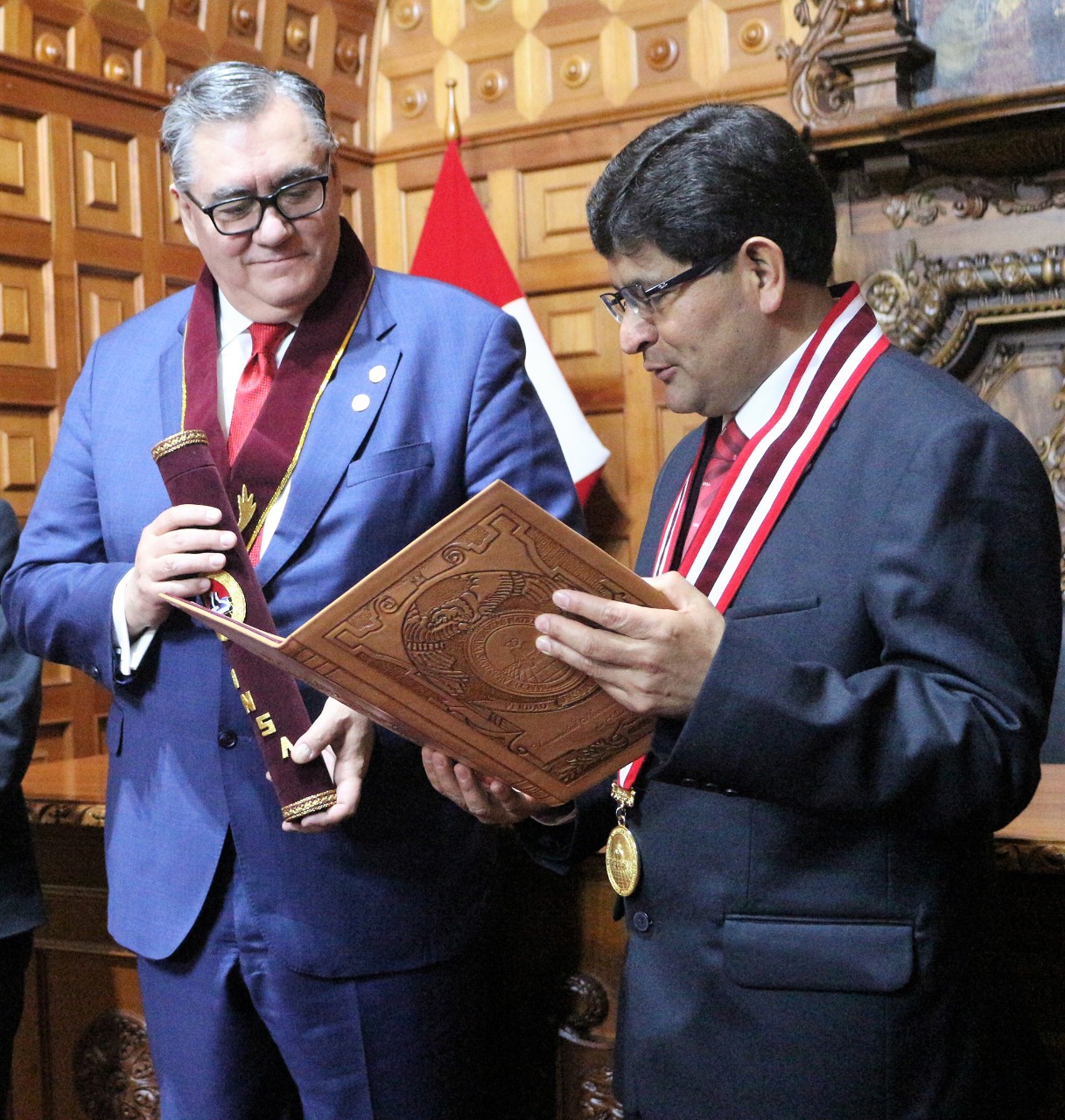“We are proud to enter into a partnership with the Universidad Nacional de San Agustín de Arequipa in Peru that will bring OU research know-how to create long-lasting research capacity at UNSA, and will help tackle some of the most daunting challenges faced by the population of the region of Arequipa, Peru and Latin America,” said OU Interim President Joseph Harroz Jr.
Díaz de la Rubia said the partnership will be a collaborative effort that will involve faculty members from a variety of scholastic backgrounds.
“By bringing faculty at OU and UNSA to work together in transdisciplinary teams from all relevant academic disciplines – from atmospheric sciences to the social sciences and the humanities, to the biomedical sciences – the work under this program will lead to science-based recommendations for local policy makers, and will undoubtedly have a very direct and significant impact on the people of the region,” he said. “Moreover, our own faculty and students will be able to translate the knowledge gained in Arequipa to better understand similar issues here in Oklahoma.”
Also last week, UNSA recognized Díaz de la Rubia with the title of Doctor Honoris Causa, referred to in the United States as an honorary doctorate. An accomplished physicist and world-
renowned research leader, Díaz de la Rubia was selected for the honor in recognition of his scientific achievements, his extensive career as an international scientist, and his contributions to the development of knowledge and research capacity at UNSA, throughout Peru’s Arequipa region and beyond.
Díaz de la Rubia joined OU in September after serving as chief scientific officer and senior vice president of strategic initiatives at Purdue University. In that role, he began his collaborative work with UNSA by developing Purdue’s Nexus Institute, a research initiative aimed at understanding the Arequipa region’s challenges related to water, food security and the environment.
Prior to Díaz de la Rubia’s position at Purdue, he was strategy director and innovation leader at Deloitte Consulting’s energy and resources practice group in Washington, D.C. He worked closely with Fortune 500 energy and manufacturing companies to identify new opportunities arising from emerging technologies.
Originally from Spain, Díaz de la Rubia earned his bachelor of science and doctoral degrees in physics from The State University of New York. He has published more than 150 peer-reviewed articles and has co-edited several books and conference proceedings.




